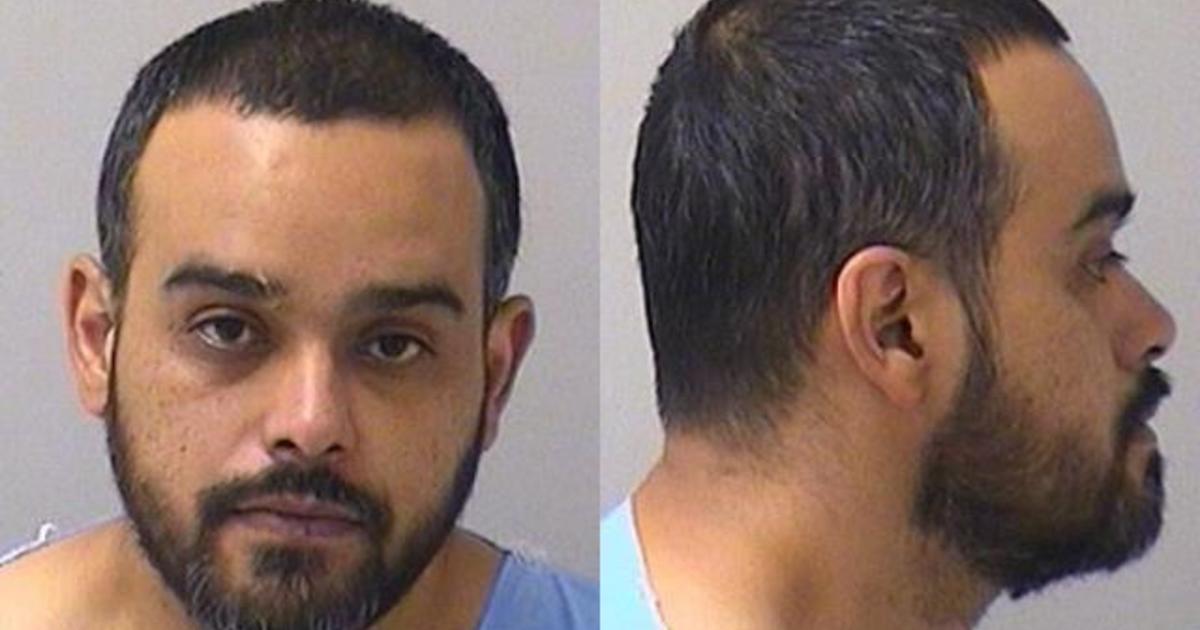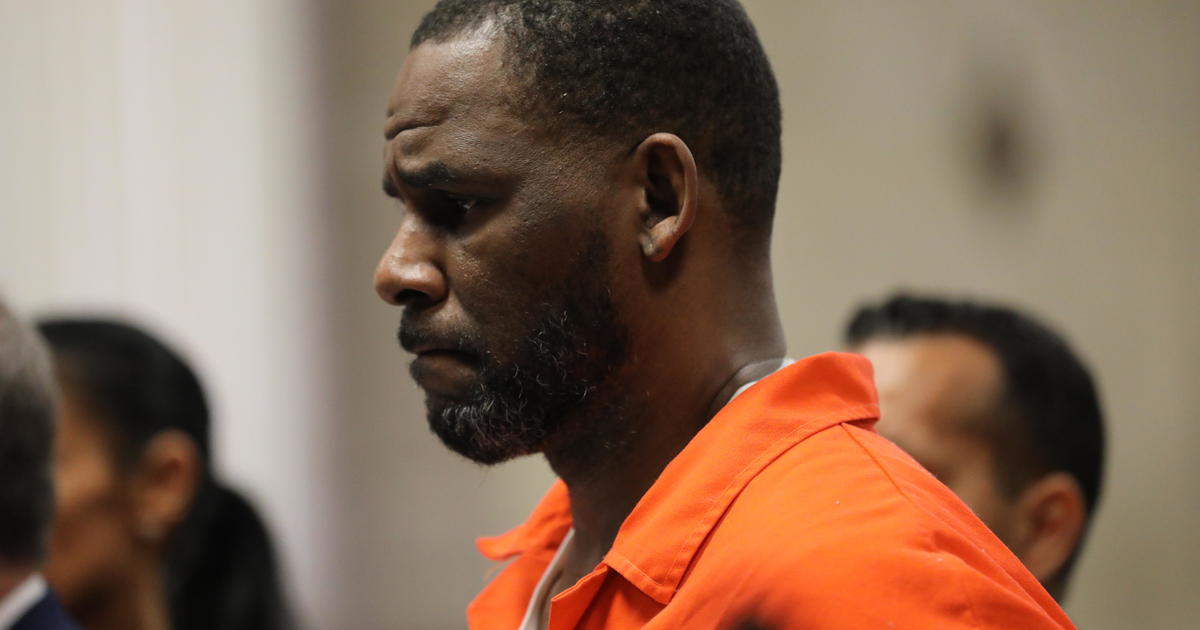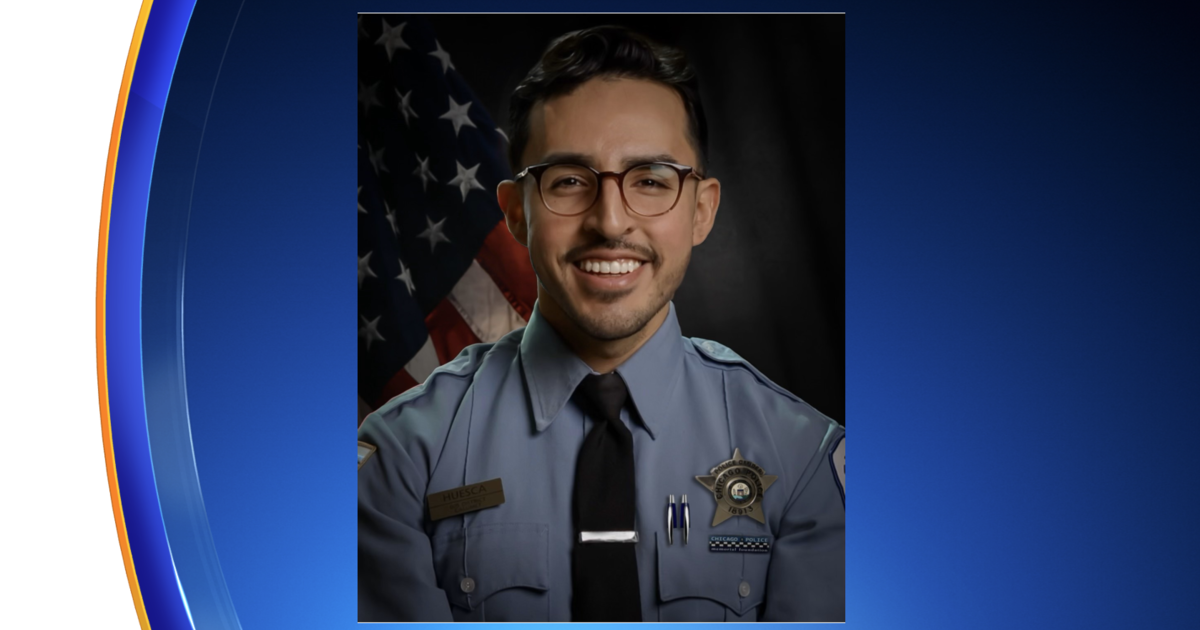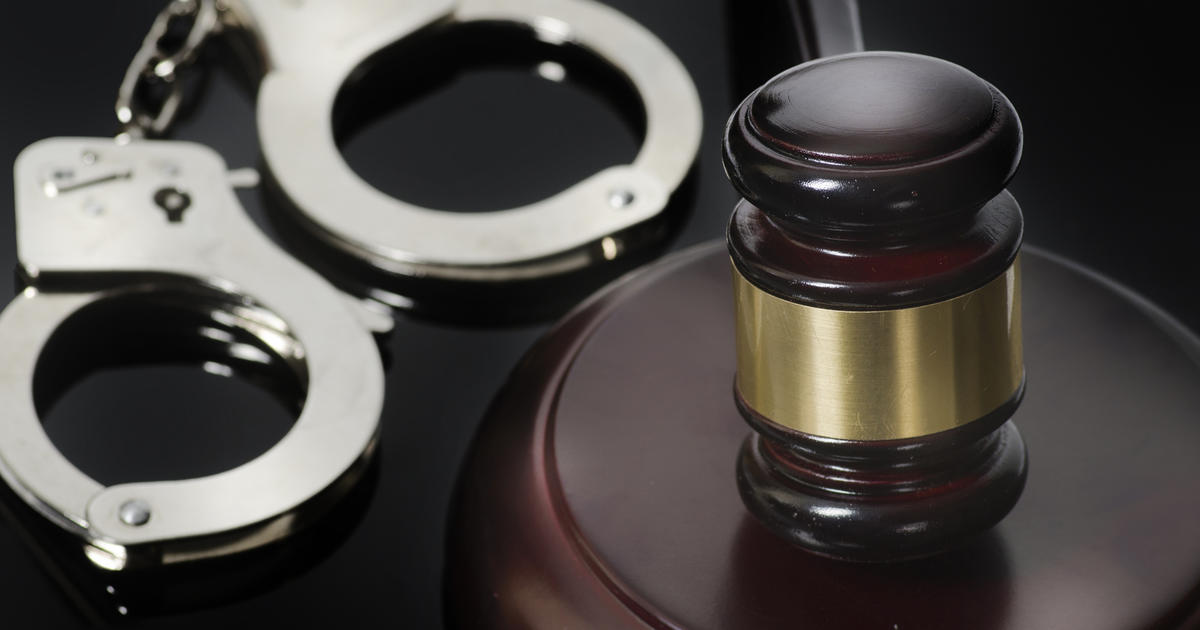Kyle Rittenhouse Acquitted Of All Charges In 2020 Kenosha Shootings
KENOSHA, WIS. (CBS) -- Kyle Rittenhouse was acquitted of all charges on Friday, after his trial for shooting three people, killing two of them in Kenosha last year.
Rittenhouse broke down in tears, nearly collapsing as a court clerk announced the jury had found him not guilty of all charges. He had faced five counts, including charges of first-degree reckless homicide, first-degree reckless endangerment, first-degree intentional homicide, and attempted first-degree attempted homicide. He faced up to life in prison had he been convicted.
Fox News' Tucker Carlson tweeted Rittenhouse's comment as he rode in the passenger seat of a car following the verdict.
"The jury reached the correct verdict. Self-defense is not illegal, and I believe they came to the correct verdict – and I'm glad that everything went well," Rittenhouse said in the video tweeted by Carlson. "It's been a rough journey, but we made it through it. We made it through the hard part."
There was no question Rittenhouse shot anyone, and the trial boiled down to whether he was legitimately acting in self-defense. He had been charged in connection with the shootings of three people in August 2020 during protests over the police shooting of Jacob Blake. Rittenhouse shot and killed Joseph Rosenbaum and Anthony Huber and wounded Gaige Grosskreutz during the widespread civil unrest in Kenosha after Blake was shot by police.
Huber's fiancée stood praying in the doorway of the courtroom as she and other relatives of the men Rittenhouse shot waited to hear the verdict.
Rittenhouse immediately began crying after the full verdict was announced, falling forward and laying his head briefly on the defense table, and slipping partly off his chair, his legs shaking as he sobbed. His lawyer rubbed Rittenhouse's shoulders and told him to breathe as his family also cried.
His mother, Wendy Rittenhouse, gasped in delight started crying, hugging others around her after the verdict.
Meantime, families of the men who were killed shook their heads and started to cry.
The jury has been kept anonymous throughout the trial, and Schroeder told them they have no obligation to speak publicly now that their task is complete, but they may do so if they wish.
"The jury, representing our community, has rendered its verdict in the Kyle Rittenhouse case," said lead prosecutor Thomas Binger. "While we are disappointed with the verdict, it must be respected. We are grateful to the members of the jury for their diligent and thoughtful deliberations. The Kenosha community has endured much over the past 15 months, and yet we remain resilient and strong. We ask that members of our community continue to express their opinions and feelings about this verdict in a civil and peaceful manner."
Meantime, a relatively small crowd that had gathered outside the courthouse at the beginning of the day gradually grew as word of the verdict spread, and dozens of people were gathered on the courthouse steps in the afternoon. Protests continued into the night, but there were only a couple of minor dust-ups.
Some supporters of Rittenhouse chanted "Second Amendment" after he was acquitted, while supporters of the men he shot lamented the not guilty verdict.
Things have remained calm in Kenosha throughout the trial and also remained so afterward, but Wisconsin Gov. Tony Evers had called up the state's National Guard in preparation for the verdict.
The not-guilty verdict came after approximately 26 hours of deliberations over four days. Rittenhouse's attorneys discussed the verdict later Friday at their offices in Racine.
"We're very happy with the verdict. We're happy that the jury took the time to put in an incredible amount of effort. There were times we doubted the case, there were times that we were confident, and to say that we were relieved would be a gross mis-understatement," Richard said.
CBS 2's Tara Molina reported a family spokesperson said Rittenhouse himself plans to speak publicly soon, but it's not clear if that will be on Friday. CBS 2 is told he is with his family in a "secure location" right now.
"He wants to get on with his life. He has a huge sense of relief for what the jury did to him today. He wishes none of this would have ever happened, but as he said when he testified, he did not start this, and we're thankful in more ways than one that the jury finally got to hear the true story," Richards said.
Richards also suggested Rittenhouse and his family likely would move away from Wisconsin now that the trial is over, saying he believes it's too dangerous for them to stay in the area given the case has become a major focus of the debate over guns, self-defense, and racial injustice across the country.
"He has to get on with his life the best he can. I think eventually some anonymity will come back to it. I don't think he'll continue to life in this area. I think it's too dangerous," he said. "To me, it's scary how many death threats we've had."
Prosecutors did not speak to the media after the verdict.
Meanwhile, as Rittenhouse enjoyed his first full night of freedom Friday night, those who helped get him there were at peace with the verdict.
"The jury made the right decision," said Lucas Zanin, who testified for Rittenhouse's defense.
As CBS 2's Charlie De Mar reported, Zanin was just feet away recording cell phone video the night Rittenhouse shot the three men.
"I'm relieved it was clear self-defense," Zanin said. "Kyle didn't deserve to go to prison for life, and the evidence showed that."
But the verdict that took the jury more than three days to reach only caused more pain for loved ones of the two men who Rittenhouse killed.
"I'm relieved. It was clear self-defense," Zanin said. "Kyle didn't deserve to go to prison for life, and the evidence showed that."
But the verdict that took the jury more than three days to reach only caused more pain for loved ones of the two men who Rittenhouse killed.
"I would like to say it's closure. It's not really, But it's another milestone in the path to eventually being able to deal with Anthony's death," said Huber's great aunt, Susan Hughes. "People have a right to self-defense. You know, Anthony had a right to his life as well."
"Nobody here is ever going to stop attempting to expose flaws in this system," said Huber's girlfriend, Hannah Gittings.
"I feel like in this case, it feels like the victims' lives don't matter - and I don't think that that's acceptable," said Rosenbaum's fiancée, Kariann Swart.
Jurors heard from more than 30 witnesses during two weeks of testimony.
Rittenhouse, who was 17 at the time of the shootings, took the stand during the trial, testifying he was acting in self-defense, and never wanted to kill anyone.
"I didn't do anything wrong. I defended myself," Rittenhouse said.
Prosecutors had argued Rittenhouse instigated the violence that night, acting as a reckless vigilante who inserted himself in a situation where he didn't belong.
"You cannot claim self-defense against a danger you create. That's critical right here. If you're the one who's threatening others, you lose the right to claim self-defense," Kenosha County assistant district attorney Thomas Binger said during closing arguments.
However, some of the prosecution's own witnesses bolstered Rittenhouse's self-defense claims.
For example, military veteran Ryan Balch, who said he was with Rittenhouse for part of the night, and also caring an AR-15 style rifle, told jurors Rosenbaum threatened to kill them. Viedographer Richie McGinniss also testified that Rosenbaum started chasing Rittenhouse, lunging for his gun. Grosskreutz himself also acknowledged he was carrying a loaded handgun during his encounter with Rittenhouse, and it was aimed at the teen when Rittenhouse shot him, although Grosskreutz insisted he wasn't intentionally pointing the gun at Rittenhouse, and wouldn't have shot him.
In one of the most dramatic days of testimony, Rittenhouse took the stand in his own defense and at one point began sobbing as he testified. Richards said there was no other choice.
"In Wisconsin, if you don't put a client on the stand, you're going to lose – period," Richards said.
Before deliberations began Tuesday morning, the field of 18 jurors was winnowed down to 12, after their numbers were placed on pieces of paper in a lottery tumbler in the courtroom, and Rittenhouse himself picked six pieces of paper that were used to identify the alternate jurors. The alternate jurors are three white males and three white females, leaving the lone person of color still on the jury of seven women and five men who will decide the verdict.
During their second day of deliberations, the jury spent about 45 minutes reviewing video evidence from the case. Issues surrounding the video prompted the defense to call for a mistrial again.
Prosecutors said jurors should be able to watch any of the videos of the shootings as many times as they want, but defense attorneys objected to allowing the jury to view drone video of Rittenhouse shooting and killing Rosenbaum, and the defense team sought a mistrial over that video, claiming prosecutors provided them with a lower quality version of the video, which was improper.
"We got a compressed version, which was not of the quality that they had," said defense attorney Corey Chirafisi. "That doesn't strike me as fair."
This was the second call for a mistrial, which prosecutors rebuffed and called "inappropriate."
Prosecutors said they sent the defense the same version of the video they received, and believe because it was being transferred from a prosecutor's Apple phone to a defense attorney's Android phone, the file was compressed during transfer. When both sides later learned the defense had received a lower quality version of the video, prosecutors provided the defense with the higher-quality version.
Schroeder said he would let jurors watch the drone video if they want to see it, but he also wants to hear from expert witnesses outside the presence of the jury regarding the dispute over the quality of the video the defense team received, and if there are problems with the handling of the video, it could cause the case to fall apart in the event of an appeal.
"I was queasy about this from the beginning, and even more so now," Schroeder said.
With Rittenhouse's acquittal, the mistrial requests are now moot.
Before jury deliberations began, Judge Bruce Schroeder dismissed an illegal gun possession charge against Rittenhouse.
While only a misdemeanor charge, the count of possession of a dangerous weapon by a person under 18 had appeared to be the most likely count to result in a conviction for Rittenhouse, who was only 17 when he carried an AR-15 style rifle in Kenosha on Aug. 25, 2020, and used it to shoot three men, killing two of them during a chaotic night of protests in Kenosha over the police shooting of Jacob Blake,
Defense attorneys argued Wisconsin state law has an exception that would allow 17-year-olds to openly carry firearms if they are not short-barreled rifles, with a barrel of less than 16 inches and an overall length of less than 26 inches.
Schroeder said the Wisconsin law was poorly written, and that the shorter barrel size of the rifle Rittenhouse carried meant he didn't violate that law. Although prosecutors said they disagreed with the judge's interpretation of the law, they conceded Rittenhouse's weapon was not a short-barreled rifle, and Schroeder dismissed that count.



